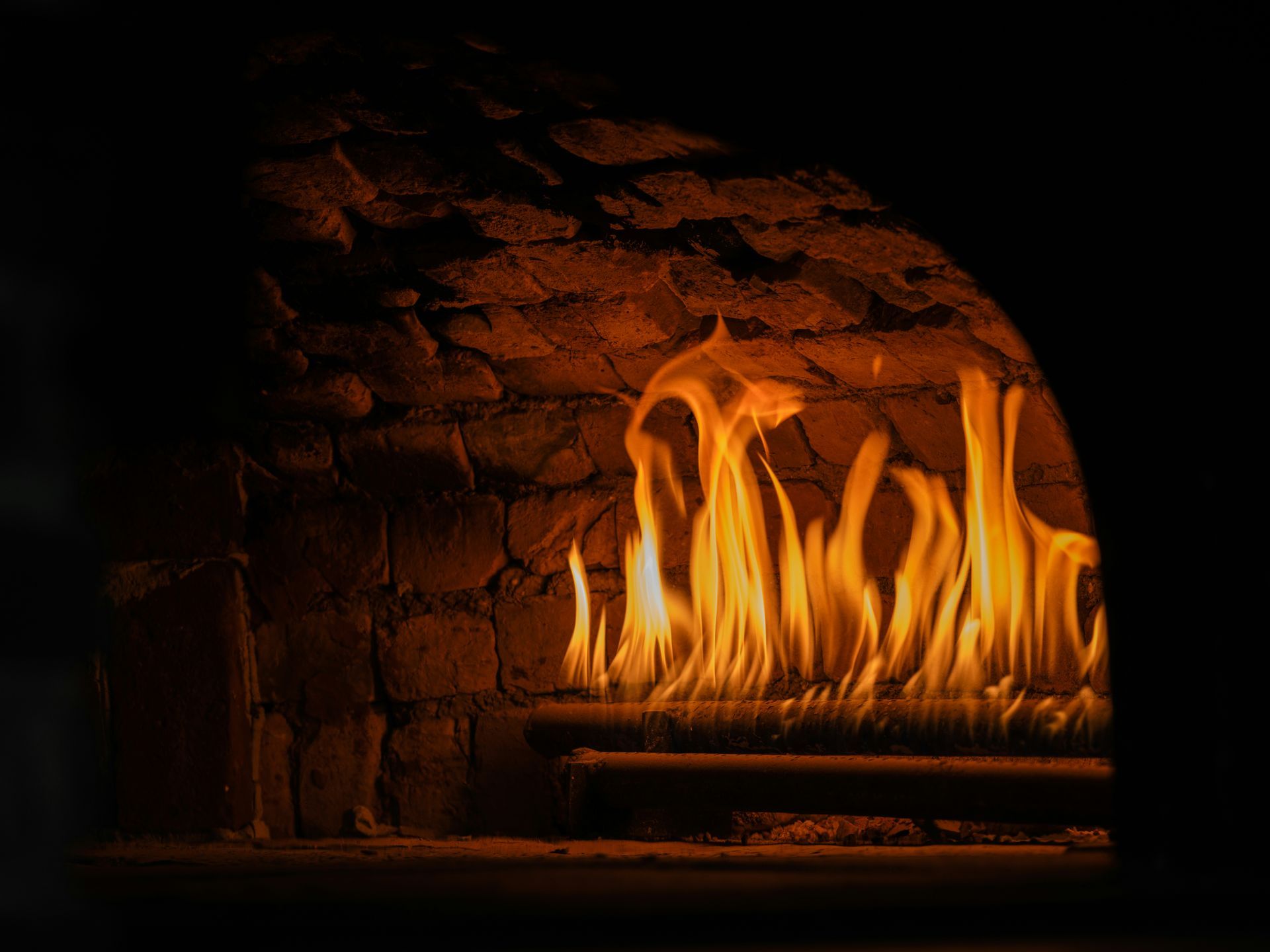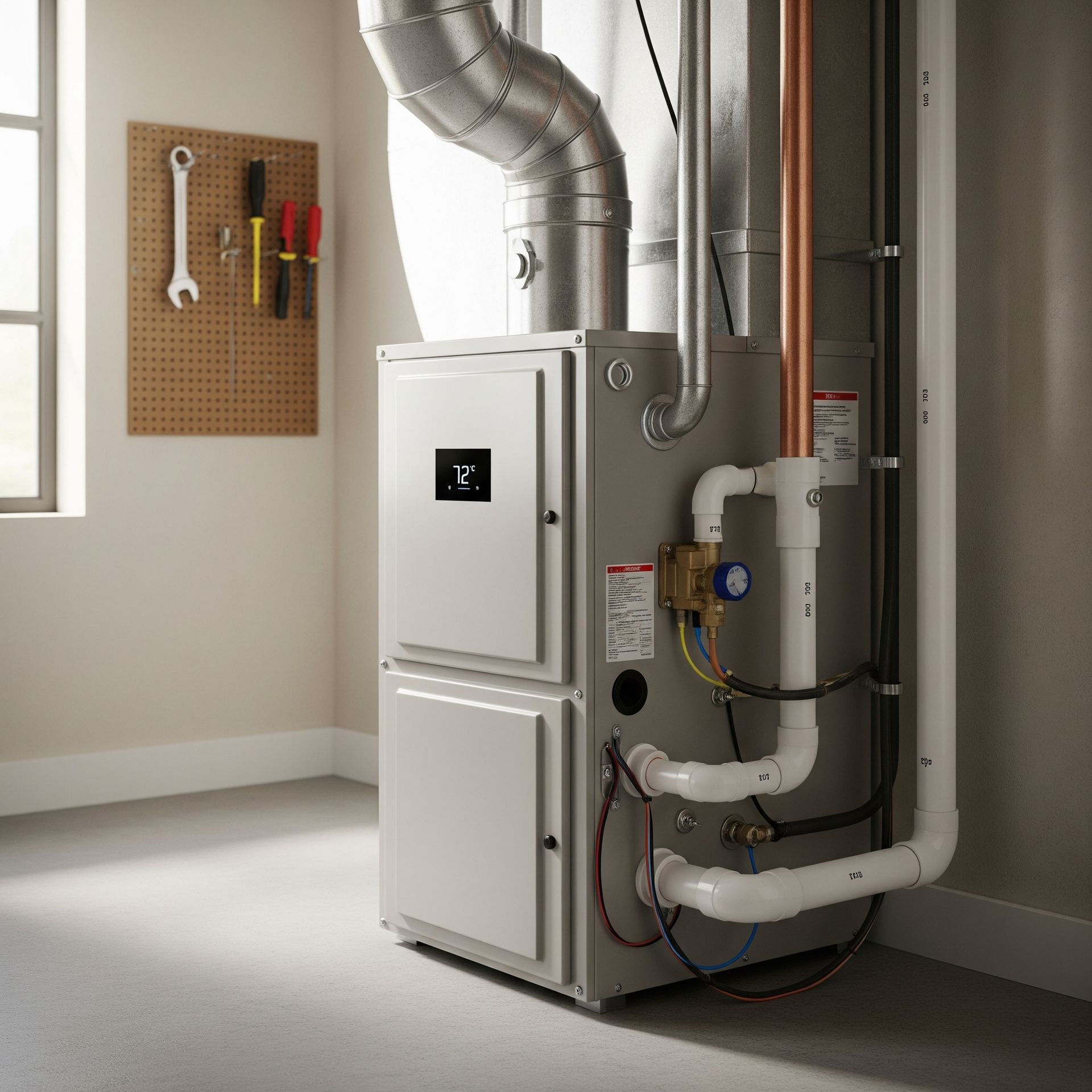How Often Should You Schedule HVAC Maintenance Checks?
Your HVAC system is the backbone of your home's comfort, keeping you cool in summer and warm in winter. But like any complex machinery, it needs regular care to perform at its best. Neglecting maintenance can lead to inefficiencies, higher energy bills, and costly repairs. So, how often should you schedule HVAC maintenance checks? This article explores the ideal frequency for HVAC maintenance, why it matters, and practical steps to keep your system in top shape. We'll cover key factors, expert recommendations, and actionable tips to ensure your residential or commercial HVAC system runs smoothly year-round.
Key Takeaways
- Regular HVAC maintenance checks prevent costly repairs and extend system lifespan.
- Most experts recommend biannual checkups: once in spring and once in fall.
- Maintenance frequency depends on system type, usage, and environmental factors.
- Professional inspections catch small issues before they become major problems.
- DIY maintenance can complement but not replace professional checks.
- Consistent care improves energy efficiency and indoor air quality.
Why HVAC Maintenance Checks Are Essential
HVAC systems work hard to regulate indoor temperatures, often running for hours daily. Over time, components like filters, coils, and motors accumulate dust, dirt, and wear. Without regular maintenance, these issues can reduce efficiency, strain the system, and lead to breakdowns. Routine checks help identify and fix minor problems early, saving you money and preventing discomfort. Additionally, a well-maintained HVAC system improves indoor air quality by reducing dust, allergens, and mold buildup. Regular maintenance also ensures your system meets manufacturer warranty requirements, which often mandate professional inspections.
Recommended Frequency for HVAC Maintenance Checks
The general rule of thumb is to schedule professional HVAC maintenance checks twice a year: once in the spring for your cooling system and once in the fall for your heating system. This biannual schedule aligns with seasonal changes, preparing your system for peak performance during extreme weather. However, the ideal frequency can vary based on several factors:
- System Type: Different HVAC systems have unique needs. For example, heat pumps may require more frequent checks than traditional furnaces due to their dual heating and cooling functions.
- Usage Patterns: Homes with heavy HVAC use, such as those in extreme climates or with large families, may need more frequent maintenance.
- Environmental Factors: Dusty or humid environments can clog filters and coils faster, necessitating more regular checkups.
- System Age: Older systems often require more frequent attention to prevent breakdowns.
For most households, sticking to a biannual schedule is sufficient. If your system is under heavy strain or in a harsh environment, consider quarterly checks to stay proactive.
What Happens During a Professional HVAC Maintenance Check?
A professional HVAC maintenance check involves a thorough inspection and tune-up of your system. Technicians follow a detailed checklist to ensure all components are functioning correctly. Common tasks include:
- Cleaning or Replacing Filters: Dirty filters restrict airflow, reducing efficiency and air quality.
- Inspecting Coils and Fins: Clean coils improve heat transfer and prevent system strain.
- Checking Refrigerant Levels: Low refrigerant can reduce cooling efficiency and damage the compressor.
- Lubricating Moving Parts: Proper lubrication reduces friction and wear on motors and belts.
- Testing Electrical Components: Faulty wiring or connections can cause system failures.
- Calibrating Thermostats: Accurate thermostats ensure efficient temperature control.
- Inspecting Ductwork: Leaks or blockages in ducts can reduce system performance.
These tasks optimize your system's efficiency, prevent unexpected breakdowns, and extend its lifespan. A typical maintenance visit takes one to two hours, depending on the system's complexity.
DIY Maintenance to Complement Professional Checks
While professional checks are critical, homeowners can perform simple maintenance tasks between visits to keep their HVAC system running smoothly. These tasks include:
- Changing Air Filters: Replace filters every one to three months, depending on usage and filter type.
- Cleaning Vents and Registers: Remove dust and debris to maintain airflow.
- Checking for Leaks or Strange Noises: Unusual sounds or water leaks may indicate issues that need professional attention.
- Keeping the Outdoor Unit Clear: Remove leaves, dirt, or debris from around the condenser unit.
- Monitoring Thermostat Settings: Ensure your thermostat is set to appropriate temperatures to avoid overworking the system.
These DIY efforts can enhance system performance but should not replace professional inspections, as technicians have the tools and expertise to address complex issues.
Factors That May Require More Frequent Maintenance
Certain conditions may warrant more frequent HVAC maintenance checks. Understanding these factors can help you tailor your maintenance schedule:
- High Usage: Systems running continuously, such as in commercial buildings or homes with large families, may need quarterly checks.
- Extreme Weather: Regions with harsh winters or scorching summers put extra strain on HVAC systems, requiring more frequent attention.
- Pets or Allergies: Homes with pets or allergy sufferers may need more frequent filter changes and cleanings to maintain air quality.
- Older Systems: HVAC units over 10 years old are more prone to wear and may need additional checkups.
- Recent Repairs: If your system has undergone major repairs, more frequent monitoring can ensure it’s functioning correctly.
Consult with your HVAC technician to determine if your system requires a customized maintenance schedule based on these factors.
Benefits of Regular HVAC Maintenance
Investing in regular HVAC maintenance offers numerous benefits that go beyond preventing breakdowns. Here’s a closer look:
- Improved Energy Efficiency: A clean, well-tuned system uses less energy, lowering utility bills.
- Extended System Lifespan: Routine care can add years to your HVAC system’s life, delaying costly replacements.
- Enhanced Comfort: Consistent maintenance ensures your home stays at the desired temperature year-round.
- Better Air Quality: Clean filters and coils reduce allergens, dust, and pollutants in your home.
- Cost Savings: Addressing small issues early prevents expensive repairs or replacements.
To illustrate the impact of maintenance on energy costs, consider the following table:
| Maintenance Frequency | Average Annual Energy Savings | Estimated Repair Cost Avoidance |
|---|---|---|
| None | 0% | $0 - $500 |
| Annual | 5-10% | $200 - $1,000 |
| Biannual | 10-20% | $500 - $2,000 |
| Quarterly | 15-25% | $1,000 - $3,000 |
How to Choose a Reliable HVAC Technician
Finding a trustworthy HVAC technician is key to effective maintenance. Look for these qualities when selecting a professional:
- Certifications: Ensure the technician is certified by organizations like NATE (North American Technician Excellence).
- Experience: Choose a technician with a proven track record in servicing your specific HVAC system type.
- Transparent Pricing: Request detailed quotes upfront to avoid unexpected costs.
- Customer Reviews: Check online reviews or ask for references to gauge reliability.
- Maintenance Plans: Many companies offer service contracts that include regular checkups at a discounted rate.
A reliable technician will provide a detailed report after each visit, outlining findings and recommendations for future care.
Frequently Asked Questions
How long does an HVAC maintenance check take?
An HVAC maintenance check typically lasts one to two hours, depending on the system's size and complexity. Larger or more intricate systems, like those in commercial buildings or featuring advanced technologies, require more time for comprehensive inspection and optimal functioning.
Can I skip professional maintenance if I change my filters regularly?
No, changing filters is important but doesn’t address other critical components like coils, refrigerant levels, or electrical systems. Professional checks are essential.
What happens if I don’t maintain my HVAC system?
Ignoring HVAC maintenance leads to higher energy bills, poor indoor air quality, and increased risk of expensive repairs or premature system replacement. Regular preventative care is vital.
Are maintenance plans worth the cost?
HVAC maintenance plans offer homeowners cost-effective bundled checkups and potential discounts on repairs. Compare plan costs to individual service fees to determine value.
How do I know if my HVAC system needs more frequent maintenance?
Increased energy bills, unusual HVAC noises, or inconsistent home temperatures signal inefficiency. Consult a qualified technician for professional assessment and tailored maintenance to prevent costly repairs and extend unit lifespan.
Final Thoughts
Scheduling regular HVAC maintenance checks is a small investment that pays off in comfort, efficiency, and savings. For most homes, biannual checkups in spring and fall are ideal, but your system’s needs may vary based on usage, age, or environment. Combining professional inspections with simple DIY tasks ensures your HVAC system runs smoothly year-round. Check out our
special offers
and
financing opportunities so you can avoid unexpected breakdowns, improve indoor air quality, and extend the life of your system.
Contact a certified HVAC technician today to set up a maintenance schedule tailored to your needs.


